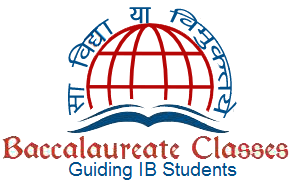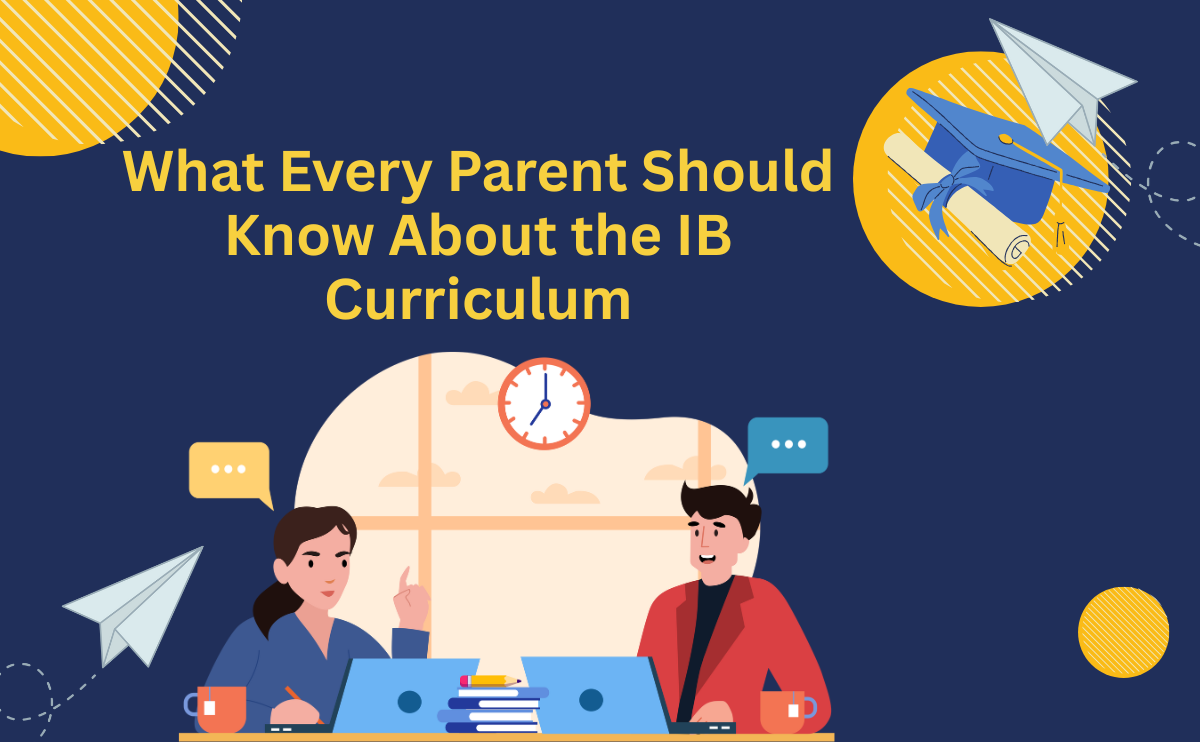OUR BLOG
IB Curriculum Explained for Parents
IB Curriculum Structure: What Parents Should Know
Are you a parent considering an IB Curriculum School for your child? Then you have landed right! Congratulations! In your journey, you must have, by now come across a whole heap of terms such as PYP, DP, MYP and others and are wondering how all this fits in together. You have indeed come to the right page because we are here to help you break down the IB Curriculum Full Form and its structure. This can help you understand what your child is learning and what makes it different, and most importantly, effective when compared to the traditional form of learning.
What is the Meaning of IB Curriculum Full Form?
First things first – it is very important to know the meaning of IB Curriculum
Full Form. The IB Curriculum Full Form is the International Baccalaureate
Curriculum. This curriculum is a globally recognized educational framework.
It is designed to turn students into curious, compassionate, and critical
thinkers. Traditional curriculum of learning is rigid and unlike exam-heavy
approaches that the traditional system of learning has, the IB syllabus full
form focuses completely on inquiry-based learning. It helps students
understand not only what they are learning but also why they are doing so.
So, when you hear IB curriculum what do you think it means? Or have you
asked the question as to what the IB syllabus is all about? When you ask
this question, you are asking, “What’s the framework that guides my child’s
education in an IB school?” This blog will explain what this framework is all
about. So, read on…
The Three Core Programs of the IB Curriculum
Here’s how the IB curriculum is structured across different age groups:
PYP – Primary Years Programme (Ages 3–12)
PYP is the beginning of learning, which means that the focus is largely on
nurturing curiosity, mainly through play, hands-on learning and real-world
connections. In this programme, kids are equipped with basic concepts of
science, math, reading and art. At the background there are questions that
always linger, such as, “How do we express ourselves? or “How do things
work in the world?”
At this level too, we have IB online tutors and IB tuition from Baccalaureate
Classes that use creative strategies to keep young learners focused and
engaged. They help little ones concentrate on foundational thinking skills
rather than rote memorization.
MYP – Middle Years Programme (Ages 11–16)
It is in MYP that students start to connect to subjects more deeply. They are
trained to explore global issues, work on multi-disciplinary projects and learn
to write research papers. For example, your child learns about the changes
in climate not just in science but also literature, art and geography.
To focus on subjects, we have subject-specific IB tutors, like IB Maths tutor
or IB Physics tutor at Baccalaureate classes, who can reinforce
understanding and breakdown tough chapters into east to understand
segments.
DP – Diploma Programme (Ages 16–19)
The most popular of the IB structure is the Diploma Programme. Rigorous
academically and recognized by top universities, the Diploma Programme
encourages students to choose six subjects from various categories
(languages, math, science and arts), complete an extended essay and to
participate in the unique Theory of Knowledge course. This process teaches
them how to be thinkers and not what to think.
When there is this level of challenge it can be hard for students to cope with.
This is why many families opt for IB online tuition or support from experts
such as IB Chemistry tutor or IB Biology tutor to help their children excel in
this course of learning.
What Is It That Makes the IB Curriculum Different from Other Curriculums?
There will be a question in your mind as to how the IB Curriculum is different
from other curriculums. Here are a few reasons we give you to show what
sets the IB apart:
Focus on Conceptual Learning: Unlike other boards, students in the IB
board are not just cramming for tests. They are doing much more! They are
understanding the key ideas that apply across subjects.
Global Perspective: When in the IB board, students explore international
issues and develop intercultural understanding.
Emphasis on Skills: As part of the IB approach, students learn
communication, research, critical thinking, and self-management.
Personalized Learning: In the MYP and DP years, students are encouraged
to explore their interests so that they can choose to do what they are good
at later in their lives.
What is the Role of the Parent in the IB Curriculum? How Can They Support?
Parent’s support in whichever curriculum matters the most. Even more in
the IB Curriculum. Whether your child has just started out or is deep into the
Diploma Programme, your support matters the most. Here is how you can
do your bit to help:
Understand the Structure: To have a complete knowledge of the IB
education full form helps you stay in touch with your child’s academic
journey.
Encourage Curiosity At Home: Since IB’s is an inquiry-based approach, it
is vital that you ask simple questions around the house like “Why do you
think that?” or “Can you explain it differently?”. This mimics what they learn
at school and by asking such questions you will be taking their learning
forward.
Consider Extra Help: Online IB tutors and IB tuition from Baccalaureate
Classes can provide personalized guidance and boost your child’s confidence.
This is very necessary in subjects that your child finds challenging.
Stay Engaged: It is very important that you check with your child’s teacher
about their learning from time to time. It is also vital that you do not
hesitate to ask for support when you feel the need for it.
When your child is in the IB Curriculum, you can be rest assured that this
curriculum is a thoughtfully designed, globally respected education system.
It emphasizes deep understanding, critical thinking, and global citizenship.
Now that you are at the end of this blog, you know what the IB Curriculum
Full Form really means. Along with it you have a fair idea of how the IB
Curriculum is structured and how you can be better prepared to support
your child’s academic growth. Whether your child is guided by skilled IB
online tutors, or receiving help from an IB Maths tutor, or getting ready for
exams with an IB chemistry tutor, the foundation of their learning is solid,
balanced, and is built to make their future successful.

